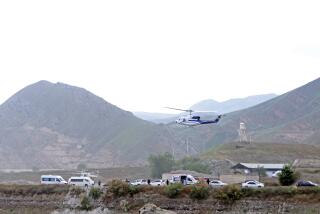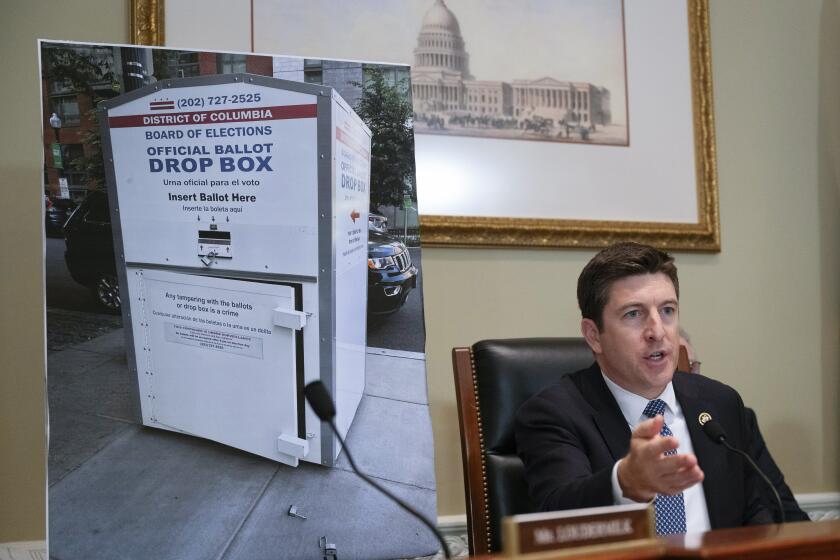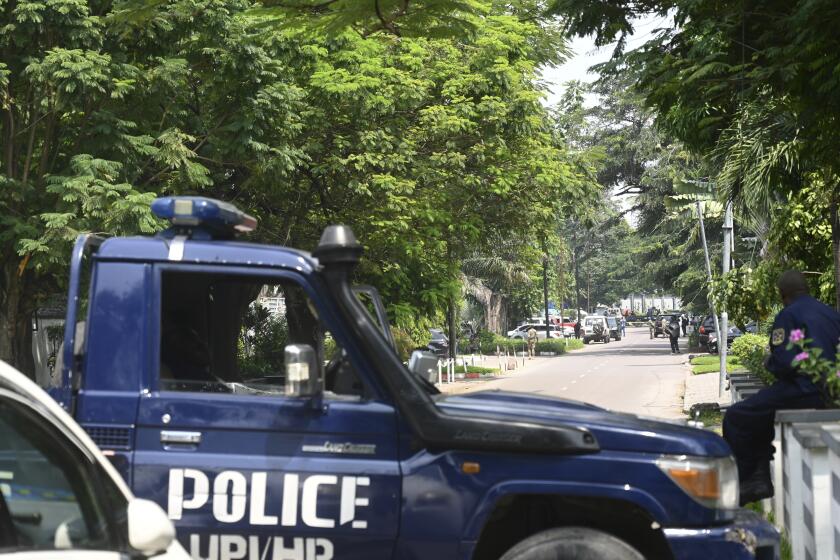PERSPECTIVE ON ARMS SALES : Close Down the Weapons Bazaar : The conditions in the Middle East are right for a one-year moratorium to allow diplomacy a chance to work.
The United States should seek an immediate one-year international moratorium on arms sales to the Middle East. The end of the Gulf War presents a unique opportunity to limit the transfer of sophisticated conventional weapons to the region. But if proposed U.S. arms sales are allowed to go ahead, no multilateral effort to restrain sales can succeed, and the opportunity to build limitations on weapons transfers into the Middle East peace process will be lost.
Contrary to some postwar assumptions, there is no urgent requirement to send a new wave of weapons to the Middle East. The Saudi, Egyptian, Syrian and Israeli defense capacities were not consumed in the Gulf War to the point of remotely needing early replenishment. And the security threat to countries in the region is lower today than it has been in decades. Surely the United States has credibly demonstrated that it is willing and able to intervene from a great distance and at a high cost to safeguard the security of its friends in the Middle East.
Yet the Bush Administration has proposed providing $18 billion in new arms to Desert Storm partners--Saudi Arabia, Egypt, the United Arab Emirates, Bahrain and Turkey. Egypt would receive 46 F-16 jets, 1,528 bombs and 80 air-to-ground missiles. These are additions, not replacements for any weapons expended in the Gulf War. And we do not yet know what Israel will want for exercising restraint after the Scud attacks, but it won’t be small.
Other nations are ready to resume the arms bazaar. Most troubling, Syria is angling for Scud B missiles from North Korea, but it should not be too late to successfully discourage this transfer.
A yearlong international moratorium on arms sales to the region would provide the badly needed time to allow any future weapons transfers to be placed in the proper context--the peace initiative of Secretary of State James A. Baker III. During his recent trip to the Middle East Baker did, to his credit, broach the issue of arms restraint, but in a highly tentative manner.
A moratorium should be used to identify a workable arms balance that safeguards the security of all the countries, one that could become a critical component of regional arms control. This should involve intensive discussions with the key Middle East nations on their true defense requirements and the consequences of another spiral in the regional arms race. The moratorium would provide the respite and time for reflection that might even persuade the potential recipients of the arms of the advantages of mutual restraint.
This is a particularly propitious moment for seeking agreement among the principal suppliers. Four nations--the Soviet Union, the United States, France and Britain, in that order--shipped more than three-quarters of the region’s weapons in the past four years. Most of the smaller suppliers, essentially of less significant, lower-technology items, are members of the anti-Saddam Hussein coalition and would follow the lead of the major suppliers.
The old shibboleth “If we don’t sell, someone else will” need not apply in today’s circumstances. Soviet President Mikhail Gorbachev has shown interest in creating restraints, and his ambassador to the United Nations has called for the Big Five of the Security Council to set the example. Prime Minister Michel Rocard, reflecting France’s current reappraisal of its past laissez-faire policy, has talked of the “absolute necessity” of setting restrictions on weapons deliveries.
Egypt’s President Hosni Mubarak views limits on arms sales as a key ingredient of an arms control regime. The Saudis and the smaller Gulf states need time to review their long-term security needs in the new context. And even Israeli Defense Minister Moshe Arens has suggested that curtailing arms deliveries to the region should be on the diplomatic agenda.
A moratorium would provide time for diplomacy to work on critical political issues. Indeed, some arms restraint is essential for that to work. During this time, careful thought should be given to post-moratorium limitations (such as on missiles) so as to moderate the flow into the region to avoid the creation of new instabilities. An international moratorium could be the first real pillar of President Bush’s “new world order.”
More to Read
Start your day right
Sign up for Essential California for news, features and recommendations from the L.A. Times and beyond in your inbox six days a week.
You may occasionally receive promotional content from the Los Angeles Times.






